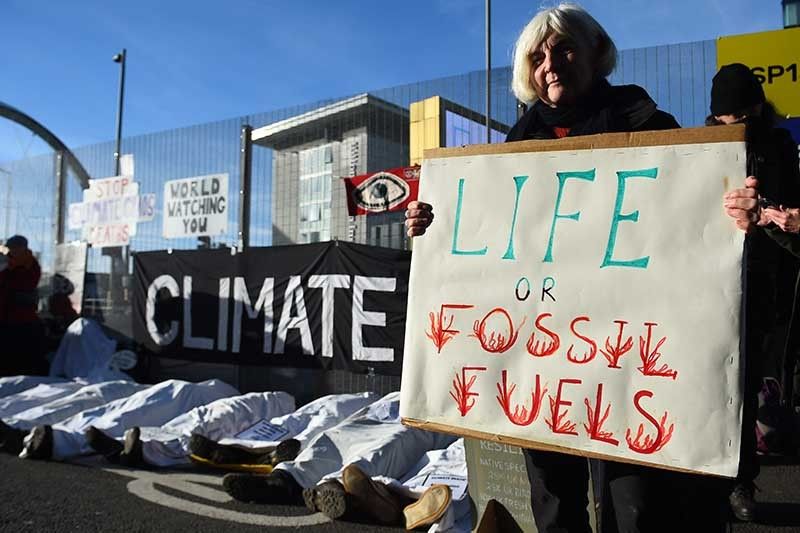Fossil fuels and finance take center stage in COP26 final day

GLASGOW, United Kingdom — A new draft COP26 statement called on nations to ease reliance on fossil fuels and boost funding to help vulnerable nations face the climate crisis as talks entered their final hours on Friday.
Delegates from nearly 200 nations are wrangling over a final agreement to the summit, which aims to keep the goal of limiting temperatures to 1.5 degrees Celsius, as global warming-driven disasters hit home around the world.
"We'll get there. We are not there yet," US climate envoy John Kerry told reporters on his way into last-ditch meetings.
After two weeks of round-the-clock negotiations, delegates produced a round-up of their progress.
The draft—which can still undergo further changes—urged governments to accelerate "the phase-out of unabated coal power and of inefficient subsidies for fossil fuels".
"Unabated" coal plants are those that do not deploy carbon capture technology to offset some of their pollution.
That is a softer ask than the first version of the text, as is a request for countries to come back next year with updated climate pledges.
The new draft did flesh out other key areas of contention, including in a line calling on developed countries to "at least double" their adaptation funding by 2025.
Bob Ward, of the Grantham Research Institute on Climate Change and the Environment at the London School of Economics and Political Science, said the inclusion of fossil fuels— previously anathema for major emitters— in the draft text was "very important and historic".
"The text is also right to emphasise the need for rich countries to honour their pledge to deliver $100 billion a year to help developing countries," he said, referring to the sum wealthy nations promised more than a decade ago that still has not been delivered.
Tracy Carty, head of Oxfam's COP26 delegation, said the new text was still missing "some vital elements".
"This is the final countdown. Negotiators should come back to the table armed with commitments that are equal to the challenge that millions of people around the world are facing every day."
Sticking points
The summit began with a bang as world leaders descended on Glasgow armed with a string of headline announcements, from a commitment to slash methane emissions to a plan to save the rainforests.
But with just a handful of hours of scheduled talks remaining, countries are hardly any closer to agreement over whether national emissions cutting plans must be ramped up in the short term, how climate action is reported, and how vulnerable nations are supported.
Host Britain says it wants COP26 to lead to commitments from countries to keep the 1.5C temperature cap goal of the Paris agreement within reach.
However, current national emissions cutting plans, all told, would lead to 2.7C of heating.
"The truth is that the atmosphere doesn't care about commitments," said Ugandan youth activist Vanessa Nakate.
"It only cares about what we put into it or stop putting into it. Humanity will not be saved by promises."
UN Secretary General Antonio Guterres said Thursday that countries' climate plans were "hollow" without commitments to rapidly phase out fossil fuels.
'Saving lives'
Negotiations received a shot in the arm on Wednesday when the United States and China—the two largest emitters—unveiled a joint climate action plan, although it was light on detail.
One of the main sticking points at the summit is finance, with developing nations insisting on more money for adaptation that can help them brace for future climate shocks.
Countries already battered by climate disasters such as record-breaking drought and flooding are also demanding they be compensated separately for "loss and damage".
Developed nations meanwhile favour a greater push on emissions reductions, something countries yet to fully electrify their grids—and largely blameless for emissions—feel is unfair.
"Rich nations treat climate finance as charity or a favour to placate developing countries into signing a compromised package of decisions," Harjeet Singh, senior adviser at Climate Action Network International, told AFP.
"We are talking about saving lives and undoing an injustice to build a safe future for all."
Organisers said the draft texts dedicated an "unprecedented" section to loss and damage, but vulnerable nations said it stopped far short of their expectations.
Other issues likely to delay an agreement in Glasgow include a long-simmering dispute over the rules governing carbon markets, and common reporting timeframes.
- Latest





























